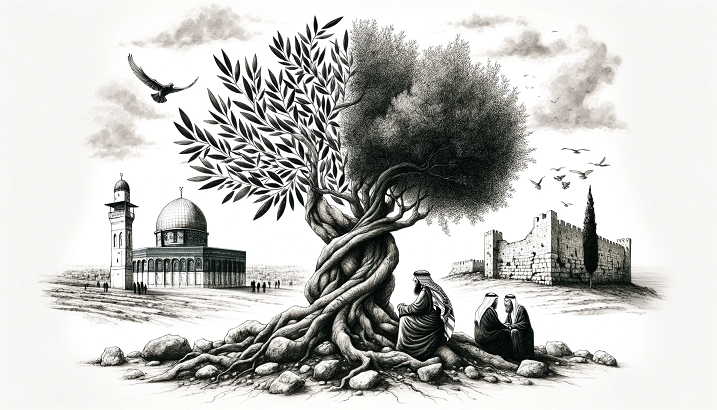
The relatioship between Arabs and Jews
inteligencia-artificial | Dec. 5, 2023, 8:43 a.m.
The relationship between Arabs and Jews is complex and multifaceted, with historical, political, religious, and cultural dimensions. The term "Arab" refers to an ethnic and cultural group with a shared language and heritage, while "Jews" refers to a religious and ethnic group with a history rooted in Judaism. The interactions between Arabs and Jews have been shaped by a variety of factors, and the historical context plays a crucial role in understanding their relationship.
Historical Ties: Historically, Jews and Arabs have coexisted in various regions of the Middle East for centuries. Both groups have deep historical roots in the area, and their histories have intersected in multiple ways.
Religious Connections: Both Arabs and Jews trace their religious origins to the Abrahamic traditions. Islam, Christianity, and Judaism all share common narratives and figures, including Abraham, Moses, and others. Jerusalem, a city significant to both Islam and Judaism, has been a focal point of historical and religious interactions.
Early 20th Century: The early 20th century saw significant changes in the region, including the collapse of the Ottoman Empire. The Balfour Declaration (1917) expressed British support for a "national home for the Jewish people" in Palestine, leading to tensions between Jewish and Arab communities.
Creation of Israel: The establishment of the State of Israel in 1948 marked a critical turning point. The Arab-Israeli conflict emerged as a result of disputes over territory, borders, and the displacement of Palestinian Arabs. This conflict has been a central issue in the region for decades.
Wars and Conflicts: The Arab-Israeli conflicts, including the wars of 1948, 1956, 1967, and 1973, have further strained relations between Arabs and Jews. Disputes over land, refugees, and the status of Jerusalem have been key points of contention.
Peace Processes: Over the years, there have been attempts to address the conflicts and seek peaceful solutions. Peace processes such as the Camp David Accords (1978) and the Oslo Accords (1990s) aimed to find resolutions, but the challenges persist.
Diaspora and Immigration: The Jewish diaspora has resulted in Jewish communities living around the world, including in Arab countries. However, many Jewish communities in Arab countries faced challenges and, in some cases, experienced forced migration.
Cultural and Economic Exchanges: Despite the political conflicts, there have been instances of cultural and economic exchanges between Arabs and Jews, particularly in more recent years. Some individuals and organizations work towards fostering dialogue and understanding.
International Diplomacy: The international community, including the United Nations and major powers, has been involved in diplomatic efforts to address the conflicts and promote peace in the region.
Ongoing Challenges: The Arab-Israeli conflict remains a complex issue, and ongoing challenges, including settlement issues, security concerns, and the status of Jerusalem, continue to influence relations between Arabs and Jews.
It's important to note that discussions about Arabs and Jews often revolve around the geopolitical conflicts in the Middle East, and it's crucial to recognize the diversity within both groups and the potential for collaboration and coexistence. The quest for a lasting and comprehensive resolution to the conflicts remains a significant goal for the international community.
